About Our Founders: One More Generation (OMG) was founded by two elementary students here in Fayetteville, GA. The founders are Carter (now 11.5) and his Sister Olivia (now 10), who are both extremely passionate about animals and conservation. They have been adopting Cheetahs in South Africa over the past few years and when they heard that Cheetahs, along with so many other species were close to extinction, they knew they had to act.
 Olivia and Carter started their own nonprofit in an effort to help educate kids and adults about the plight of endangered species so they can save them for at least One More Generation… and beyond. One More Generation (OMG) was formed in late 2009 and officially filed with the state of GA as a nonprofit in January of 2010. OMG was granted their 501(c)(3) status by the IRS in May of 2010.
Olivia and Carter started their own nonprofit in an effort to help educate kids and adults about the plight of endangered species so they can save them for at least One More Generation… and beyond. One More Generation (OMG) was formed in late 2009 and officially filed with the state of GA as a nonprofit in January of 2010. OMG was granted their 501(c)(3) status by the IRS in May of 2010.
Shortly after starting their organization the Gulf oil spill happened (April 2010). Olivia and her brother came home from school and watched with their parents the first images of sea birds and sea turtles being pulled out of the Gulf caked in oil. Olivia immediately started to cry and she looked at her parents and asked, “What are we going to do about this problem?”
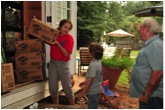
So they picked up the phone and contacted the four largest agencies involved with the animal rescue efforts. Each of the agencies gave them a list of badly needed animal rescue supplies. The two kids spent the next four months going from church to church, and from school to school giving presentations and asking for help collecting the supplies.
Then in late August of that year (on Olivia’s eighth birthday) the two kids headed to the Gulf to deliver the supplies. They spent 5-daysin the region and worked with the Marine Mammal & Sea Turtle Rescue Center who gladly accepted the collected supplies. The center had 146 sea turtles, several sharks and even a dolphin, all of which needed their care. The kids had a blast working at the center and meeting all the dedicated staff and volunteers who worked so hard to save these animals.
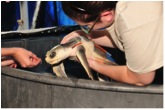
On the last day of their trip, a veterinarian from CA (who was volunteering her time and helping out at the center) approached the kids and commended them for their hard work and passion. We were all so proud of the work the kids had done and none of us could have imagined anything else we could have done to help these animals.
Just then the veterinarian asked the kids what they were doing about the environment. Perplexed we all looked at her like she was from Mars. Weren’t we doing enough, why should we be focusing on the environment? After all, our organization was about trying to save endangered species. Helping out during the oil spill was kind of a bonus thing we were doing. Weren’t we doing enough we asked?
Well, she said, not really. With open mouths we all stood there confused. She continued on by explaining that it takes 6-8 weeks to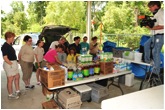 rehab these animals with all the supplies we brought. She then asked us “Where do you want me to put the animals when they are all better?” Not understanding her question, we all answered “why back in the ocean of course. After all, I am sure the oil will be cleaned up someday and surely there are other parts of the ocean which are oil free that you could bring the sea turtles to we explained”.
rehab these animals with all the supplies we brought. She then asked us “Where do you want me to put the animals when they are all better?” Not understanding her question, we all answered “why back in the ocean of course. After all, I am sure the oil will be cleaned up someday and surely there are other parts of the ocean which are oil free that you could bring the sea turtles to we explained”.
She looked at us with saddened eyes and told us that Oil was not the problem, Plastic was the problem. Confused we all asked how plastic could be the problem. That is when she told us about plastic pollution. In all sincerity, that was the first time any of us had ever heard the term Plastic Pollution. She continued on explaining how bad plastic pollution was in our oceans and told us that many of the rescued sea turtles and sea birds would ultimately die from entanglement or from ingesting plastic.
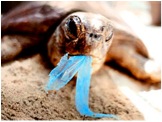 Needless to say, as we left the Gulf region, we were all a bit down and even frustrated that we had not done all we could have done tohelp these poor animals. After all, the Dr. was right. You simply cannot attempt to save animals without adding in an environmental component to your program.
Needless to say, as we left the Gulf region, we were all a bit down and even frustrated that we had not done all we could have done tohelp these poor animals. After all, the Dr. was right. You simply cannot attempt to save animals without adding in an environmental component to your program.
So once we returned, we spent the next 5-months educating ourselves about the issue of Plastic Pollution. We looked at the various causes and picked the low hanging fruit, which happened to be single use plastic bags. We learned that several communities and even entire countries had already taken steps to cut down the amount of bags they use. We quickly decided we too would look at targeting plastic bags. As we started to request meetings with local city officials, it was evident that despite our sincere plans to want to be the solution, no one was taking us serious. After all, who had ever heard of One More Generation?
So in Feb of 2011, on Carter’s 10th birthday, we launched our Plastic Awareness Coalition and we set out to get like minded local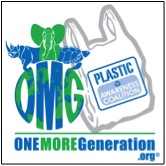 organizations to sign on with us so we would have enough clout to request meetings with local officials without being looked at as a mere kids group. Then, realizing that the wheels of change within the political arena turned slow, Carter and Olivia asked if we could somehow reach out to kids to share with them all that we had learned. After all, if we all care so much after learning about the problem, surely their peers would do the same.
organizations to sign on with us so we would have enough clout to request meetings with local officials without being looked at as a mere kids group. Then, realizing that the wheels of change within the political arena turned slow, Carter and Olivia asked if we could somehow reach out to kids to share with them all that we had learned. After all, if we all care so much after learning about the problem, surely their peers would do the same.
So in March of 2010, we developed our Plastic Awareness Week curriculum. We partnered with several teachers who helped us write the curriculum and then we set out to test the program in Olivia and Carter’s school. The school was kind enough to let us use them, as our testing grounds and the program was a huge success. All the kids and their families got involved and everyone learned a ton of information about the issue and we even included helpful and easy ways each student and their families could make subtle changes in their daily lives, which would make a huge impact on the environment.
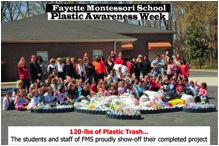 Since launching our school program, Olivia and Carter have hosted the program to various schools and organizations across the country. Their goal is to get the Plastic Awareness Week curriculum in every elementary school in the US. The program provides each student with their very own stainless steel water bottle and a cloth reusable bag, which they get to decorate. We also bought the movie rights to an award-winning documentary about plastic which each school gets a copy of. We also provide several age appropriate environmental books to each classroom in the school and much more.
Since launching our school program, Olivia and Carter have hosted the program to various schools and organizations across the country. Their goal is to get the Plastic Awareness Week curriculum in every elementary school in the US. The program provides each student with their very own stainless steel water bottle and a cloth reusable bag, which they get to decorate. We also bought the movie rights to an award-winning documentary about plastic which each school gets a copy of. We also provide several age appropriate environmental books to each classroom in the school and much more.
The program is extremely successful and we are now in the process of having the curriculum set to match national standards for science as well as other areas. We are also working with several organizations in an attempt to have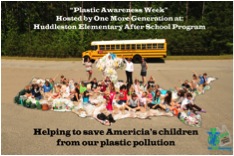 100% of the funding provided for schools so that the entire program is free.
100% of the funding provided for schools so that the entire program is free.
Our coalition is also in full swing and we now have over 70 local, national and even international organizations on board.
Carter and Olivia continue to speak to various organizations, churches, schools etc. across the country and even made a trip to South Africa last December where they worked with such well known organizations as IFAW (International Fund for Animal Welfare), CLAW (Community Lead Animal Welfare), the Ann Van Dyk Cheetah Center and with the folks at Jane Goodall’s Roots and Shoots SA.
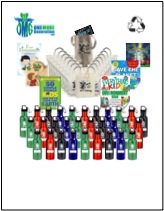 While in Cape Town, the kids added a new Board Member to One More Generation ‘Robyn Cant-Haylett who is a local girl that is just as passionate about saving animals and cleaning up the environment as they are. Robyn will be working with the folks at the Two Oceans Aquarium in Cape Town and she is in the process of coordinating several educational programs designed to educate kids about Plastic Pollution.
While in Cape Town, the kids added a new Board Member to One More Generation ‘Robyn Cant-Haylett who is a local girl that is just as passionate about saving animals and cleaning up the environment as they are. Robyn will be working with the folks at the Two Oceans Aquarium in Cape Town and she is in the process of coordinating several educational programs designed to educate kids about Plastic Pollution.
Carter and Olivia are also working with two national retailers in an attempt to help them remove plastic bags from their offering. We are very excited about the opportunity and hope we can get more retailers to voluntarily offer alternatives to their customers.
We are pleased to announce that the 5-Gyres Institute has also joined their Plastic Awareness Coalition and we are now working together on ways we can help each other spread the word and help kids (and their families) learn how they too can be ‘The Solution to Plastic Pollution’.
If you would like to learn more about the various initiatives Olivia and Carter are involved with, or if you would like to have them come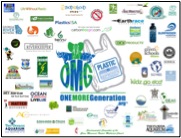 and speak at your next event, please feel free to send them an email. Schools and parents interested in having the Plastic Awareness Week program at their school can also send them an email and they will gladly get back with you. You can also help support their organization on line by clicking the Donate button on any of the pages on their site.
and speak at your next event, please feel free to send them an email. Schools and parents interested in having the Plastic Awareness Week program at their school can also send them an email and they will gladly get back with you. You can also help support their organization on line by clicking the Donate button on any of the pages on their site.
One of their latest ventures involves organically grown produce. After visiting so many animal rescue facilities, zoos and aquariums, Olivia noticed that all these facilities desperately need healthy food options for their animal residence. As she learned more, she realized that most facilities need to rely on food donations from various sources and that sometimes the food donated was old and or already expired. She also heard about how expensive it is to get good healthy produce.
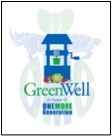 Armed with their new found knowledge, Olivia and Carter decide to start a new division within their organization which would be dedicated to growing organically grown produce which they could donate to animal facilities everywhere.
Armed with their new found knowledge, Olivia and Carter decide to start a new division within their organization which would be dedicated to growing organically grown produce which they could donate to animal facilities everywhere.
The new division is called GreenWell and they have already produced their first crops, which are being donated to a local animal rescue program in their hometown. They already have order requests from their local zoo and aquarium and they plan to expand their production capabilities 4-fold later this year.
Their goal is to grow ample food supplies for their customer base and to also partner with the local food banks and senior homes that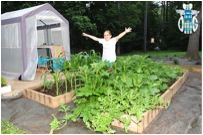 could receive some of their crops as well.
could receive some of their crops as well.
Also, since Olivia and Carter started OMG in an effort to save endangered species the two are still very active doing just that. After returning from South Africa, where the kids learned first hand about the escalation of poaching of Rhinos for their horns, they decided they wanted to try and make a difference for Rhinos. The first thing they did was to partner with two amazing South African organizations. The first organization is called SPOTS (Strategic Protection Of Threatened Species) and the second is called Rhino SA (South Africa). Both organizations have been fighting to save Rhinos for years now through direct protection programs and through 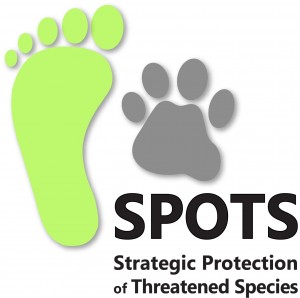 education.
education.
Then they decided to launch an international Rhino Letter Writing Campaign which was designed to offer concerned citizens around the world a way to learn more about the issue and to help them understand that each one of us is responsible for what happens to all God’s creatures. The campaign asks people all over the world to send OMG letters addressed to South African President Jacob Zuma, asking him to get serious about saving the species before it is too late. The goal with the campaign was to collect at leats 1,000 letters and then to return to South Africa where they will hand deliver all the![]() collected letters to President Zuma to show him that the whole world is begging him to save the species before they become extinct.
collected letters to President Zuma to show him that the whole world is begging him to save the species before they become extinct.
So far we have collected over 2,000 letters from all over the world and thanks to the hard work of the folks at Rhino SA, we will soon be adding over 1,000 more letters from students in schools all across South Africa. You can learn more about the campaign at the following link:
We hope you like all the work our young founders are doing and that you too are inspired by their work. If you would like to learn more or to book Carter and Olivia and special guests at your next function, please give us a call at 678-491-6222 or send us an email at info@onemoregeneration.org
Thanks in advance for your interest in our organization and we hope to hear from you soon.
Best regards from the entire OMG team 😉
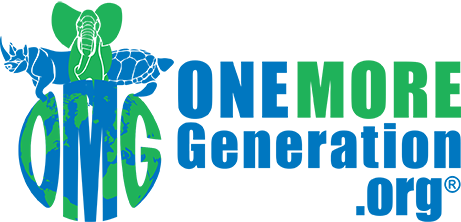

2 Comments
Other Kids… « Hudson Valley Homeschool Roots & Shoots
March 29, 2011[…] OMG Kids: They started a website help animals. They felt so connected to animals that they wanted people to understand them. […]
Ian Somerhalder | Vampire Diaries | OMG Founders | 9/10/11 | One More Generation
August 13, 2011[…] Our Founders […]